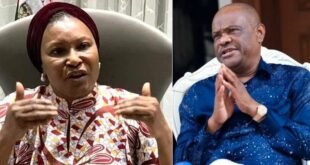For the 2024 fiscal year, the Nigerian government has provided funding of N3,556 for the educational needs of every school child aged 5-17 years, based on data analysis by Ripples Metrics.
The analysis is taken from the 2024 budget review of the Ministry of Education.
In the 2024 budget approved by President Bola Tinubu, the Ministry of Education was allocated N1.59 trillion. This amount represents 5.52 per cent of the N28.78 trillion budget for the fiscal year.
The budget for education was increased from the Rp1.44 trillion proposed by the president in November 2023, when it was initially presented at a joint session of the National Assembly.
Ripples Metrics evaluates the budget to see how much money the government provides for school children. Under the Ministry of Education, there are 250 agencies and departments, including the ministry’s headquarters and budget provisions for public institutions owned by the federal government.
To conduct our analysis, Ripples Metrics filtered the budgets to see which institutions’ capital budgets would directly impact school children between the ages of 5-17, namely those in primary and secondary schools. Our findings revealed only five institutions, namely the Ministry of Education headquarters, the Universal Basic Education Commission (UBEC), the West African Examinations Council (local and international) and the Nigerian Teachers Institute.
READ ALSO:RipplesMetric: Nigeria consistently fails to meet AU farm budget targets
The total budgeted capital budget for these institutions stands at N224.34 billion. Hypothetically, if this amount is divided by the total number of children aged 5-17 years, which is 62.9 million, it would amount to about N3,567 budgeted for each child.
Challenges in the education sector
Nigeria faces the challenge of a large number of out-of-school children, with the country accounting for a significant percentage of the global out-of-school rate. For emphasis, 60 percent of the majority of children in this category are girls. Globally, there are 118.5 million out-of-school girls.
About a decade ago, UNICEF revealed that although primary education is officially free and compulsory, about 10.5 million Nigerian children aged between 5-14 years were out of school.
It was further stated that only 61 percent of children aged 6-11 years attended elementary school regularly and only 35.6 percent of children aged 36-59 months received early childhood education.
To date, the numbers have been rising indicating that initiatives by the federal and state governments have failed over several administrations. The latest data from UNICEF shows that out-of-school children in Nigeria have risen to 20 million.
In Sub-Saharan Africa, there are approximately 98 million out-of-school children.
In another development, the National Bureau of Statistics report on child labor in Nigeria showed that 24.67 million children in the country were engaged in labor activities that were detrimental to their physical and mental development in 2022.
This figure represents 39.23 percent of Nigeria’s total child population of 62.90 million that year. However, the federal government says the figure could rise to 43 percent by 2023.
NBS data further shows that more boys (39.6 percent) work as children than girls (38.8 percent).
Education budget trends
In 2006, the Education for All (EFA) High Level Group recommended that governments allocate between 4% and 6% of their Gross National Product (GNP) to education, and in addition, dedicate 15% to 20% of their total budget to education . education sector.
However, data monitored by Ripples Metric shows that the Nigerian government failed to allocate as much as 10 percent to the sector.
In 2020, N607.66 billion was allocated to the Ministry of Education. This amount represents 5.6 percent of this year’s total budget. In 2021, the allocation for the sector increased to N771.46 billion, which is 5.6 percent of the total 2021 budget.
In addition, in 2022, the amount dropped to 5.2 percent of the total budget, with N900.4 billion allocated to the sector. In 2023, N1.08 trillion was allocated to the education sector, representing 4.9 percent of the total budget for the year.
By: James Odunayo
RipplesMetrics Post: Nigerian government to allocate N3,566 for every child’s education by 2024 appeared first on Latest Nigeria News | Top News from Ripples Nigeria.
 JamzNG Latest News, Gist, Entertainment in Nigeria
JamzNG Latest News, Gist, Entertainment in Nigeria









